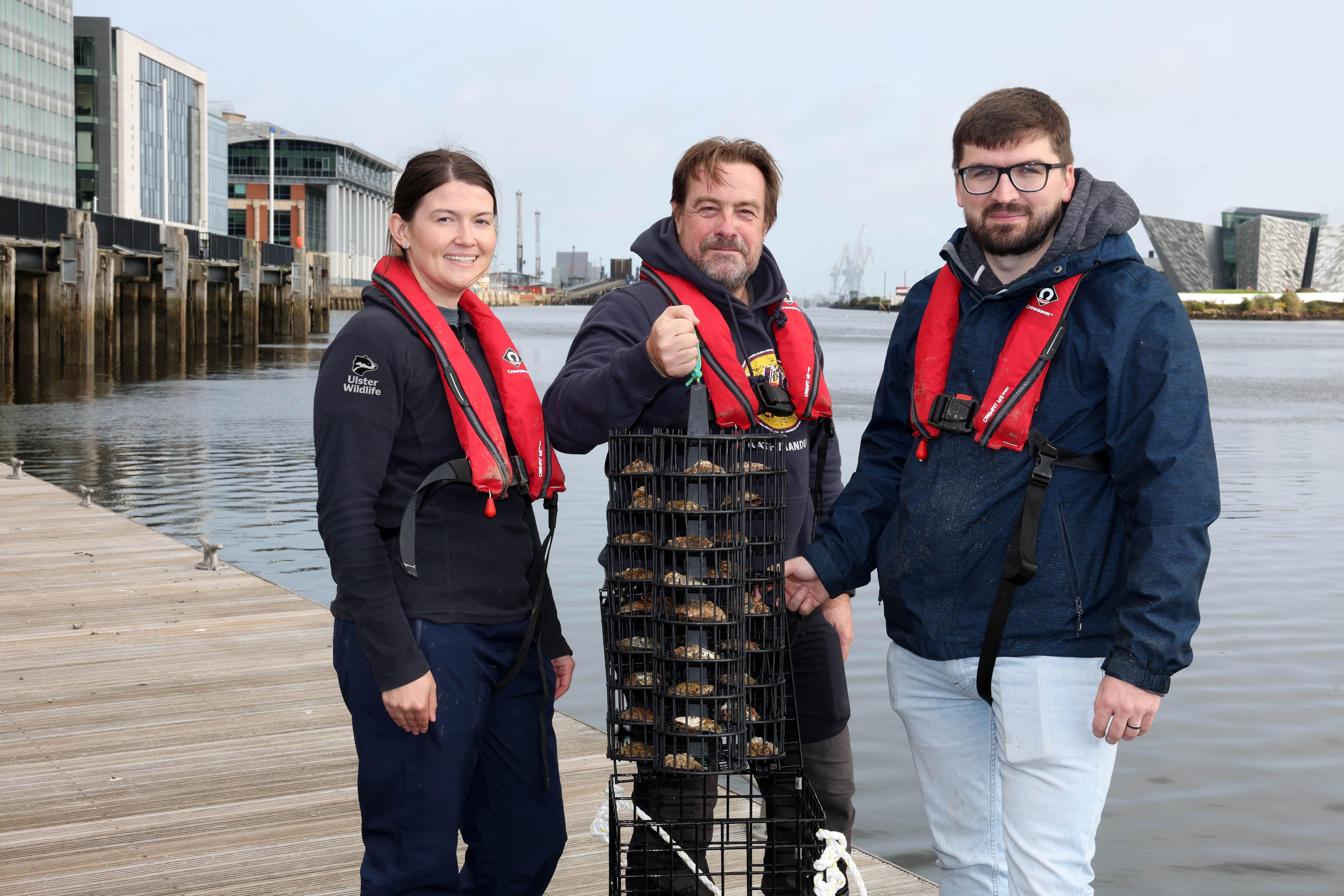Oysters hoped to improve water quality and boost marine life in Belfast Harbour
A nursery of oysters has been introduced at City Quays by Belfast Harbour, in partnership with Ulster Wildlife.

Your support helps us to tell the story
From reproductive rights to climate change to Big Tech, The Independent is on the ground when the story is developing. Whether it's investigating the financials of Elon Musk's pro-Trump PAC or producing our latest documentary, 'The A Word', which shines a light on the American women fighting for reproductive rights, we know how important it is to parse out the facts from the messaging.
At such a critical moment in US history, we need reporters on the ground. Your donation allows us to keep sending journalists to speak to both sides of the story.
The Independent is trusted by Americans across the entire political spectrum. And unlike many other quality news outlets, we choose not to lock Americans out of our reporting and analysis with paywalls. We believe quality journalism should be available to everyone, paid for by those who can afford it.
Your support makes all the difference.An oyster nursery has been installed in Belfast Harbour in a bid to improve water quality and boost marine life.
The nursery at City Quays is thought to be the first of its kind to be introduced to a commercial shipping channel in Northern Ireland.
It will be home to around 600 native oysters, which prior to installation were cleaned, measured and screened for disease by a group of volunteers, including Ulster Wildlife representatives and employees of Belfast Harbour.
For over a century it was thought that native oysters in Northern Ireland were extinct, but a number of oyster restoration initiatives have been launched by Ulster Wildlife in recent years, with similar nurseries being installed in Bangor and Glenarm Marina with great success.
The project is an exciting step in Belfast Harbour’s journey to achieving our sustainability ambitions around improving water quality and promoting marine biodiversity, and becoming a world-leading green port
With appropriate maintenance and care, the oysters introduced to the waters at Belfast Harbour will release millions of larvae which will form reefs on the seabed, providing habitat for a variety of other marine species.
This will, it is believed, have a positive impact on marine biodiversity in the area, as well as the revival of the native species, for which Belfast Lough was once renowned.
The oysters will also contribute to improved water quality in the port, due to their unique ability to reduce water pollution and improve water clarity.
Overfishing, habitat loss, pollution and invasive species have seen the native oyster population become close to extinction in Northern Ireland
Simon Gibson, marine, environment and biodiversity officer at Belfast Harbour, said the move is also part of a current drive to restore native oysters within Belfast Lough.
“The project is an exciting step in Belfast Harbour’s journey to achieving our sustainability ambitions around improving water quality and promoting marine biodiversity, and becoming a world-leading green port,” he said.
Dr David Smyth, marine conservation manager at Ulster Wildlife, added: “Overfishing, habitat loss, pollution and invasive species have seen the native oyster population become close to extinction in Northern Ireland.
“With support from DAERA and Belfast Harbour, Ulster Wildlife has been able to deliver projects such as the installation of the oyster nursery at City Quays – an important step in helping to bring back this endangered species. It will also provide a host of wider benefits to the marine environment through the positive effects oysters can have in improving water quality around a busy industrial port.”